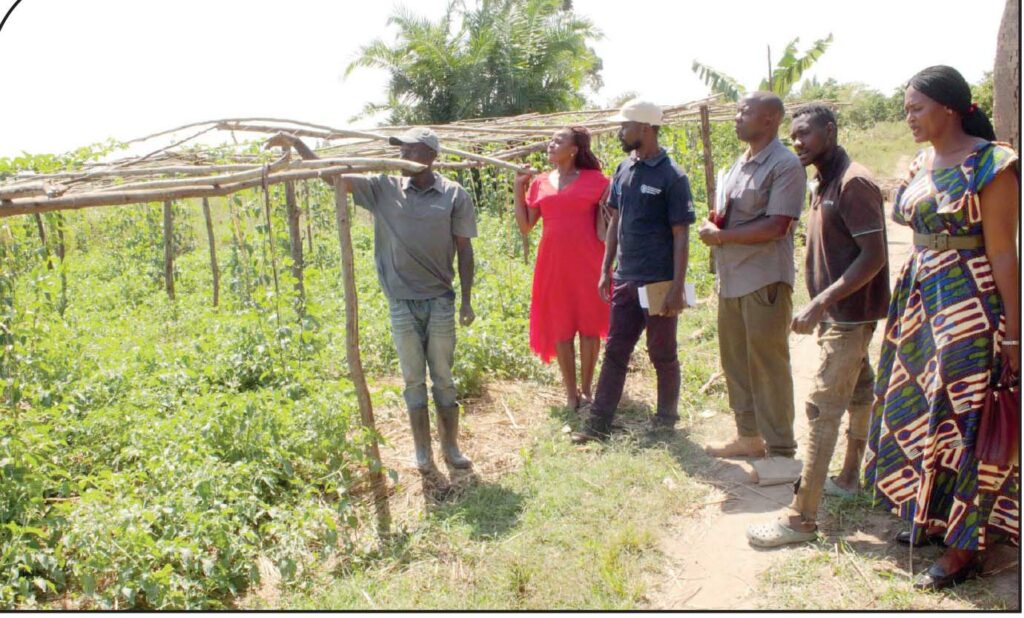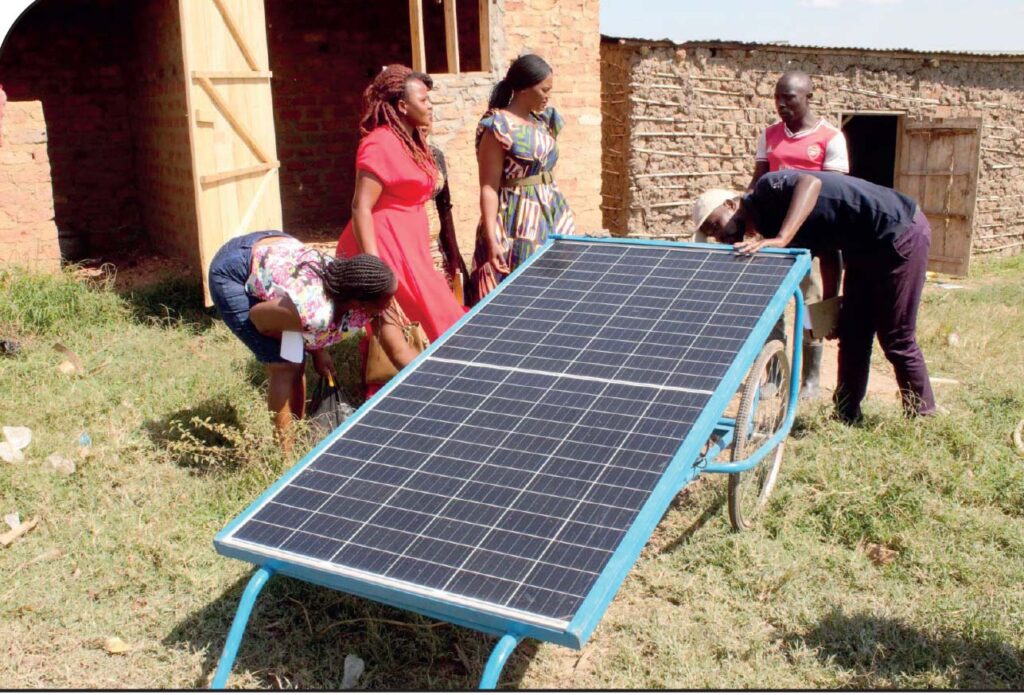The prolonged dry spell and the ever-increasing uncertainties in rainy seasons have created tension and worry among many farmers in Uganda and, as well, led to food insecurity in many communities.
This is the case because many farmers in Uganda still rely on the rains, which come in specific months, to prepare for cultivation and farming. While God gifted this country with abundant freshwater resources, most farmers have been hesitant to adopt irrigation farming because of a lack of water infrastructure and the high cost of equipment.
In Mpigi, farmers with the help of the production department of the district, have started benefi ting from the UgiFT micro-scale irrigation programme, a recent government intervention helping farmers remain in business through prolonged dry spells.
Patrick Sserwadda, the head of the Mpigi district production department, said at least 19 farmers have already benefi ted from this programme, which was introduced by the Government through the Ministry of Agriculture, Animal Industries and Fisheries.
The micro-scale irrigation programme supports farmers in purchasing irrigation equipment through a matching grant scheme, in which the cost of the equipment is shared between the farmer and the Government.
Sserwadda added that farmers on this programme were not affected by the dry spell and they can grow crops all year round. This enables them to sell produce when the prices are more advantageous.
John Baptist Ssegawa, the senior agriculture engineer at Mpigi district local government, said farmers who embraced the programme had already started benefi ting from it. He called on the other farmers to embrace the programme.
Improving lives
With the district production team, led by department head Sserwadda, councillors recently went to monitor farmers who are using the micro-scale irrigation programme to see how the programme has helped them cope with the ever-increasing climatic changes.
Emmanuel Sseguya, a farmer in Mugge village, Nkozi sub-county, said before he embraced the programme, he used to spend a lot in terms of buying fuel to operate pumps which he used on his farm.
The fruit farmer said he could now grow crops all year because he irrigates his farm with the machines he acquired under the micro-scale irrigation programme.
“Before, I used generators to pump water from the water source to irrigate my crops, which was expensive because I would buy fuel expensively and in the end, this would affect my profi ts. When I switched to this programme, I fi nd it convenient because I only need to buy a solar system to start pumping water,” Sseguya said.

He added that whereas some parts of the country including Mpigi districts were hit by the long prolonged dry spell, his farm was not affected because he irrigates his crops using a micro-scale irrigation system.
Ignatious Miwanda, a farmer at Kyansanvu village, Mpigi town council, said the programme was one of the continent programmes that have assisted the local farmer to remain in the business despite the prolonged dry spells which hit the country.
Miwanda, thanked the Government for this intervention, which he said, had proved to be of great help to the local farmers.
“This programme has helped us who could not raise the money to buy this irrigation equipment because it is too expensive. With the help of the Government, I was able to acquire the solar panels and the water infrastructure which has helped me deal with the dry spell. I now sell my products all year round,” he said.
Miwanda added that he can now realise some changes in terms of income from his farm since irrigating his garden keeps it productive all the year.
Sulaiman Musisi, a farmer of Nkozi, is also a benefi ciary of the micro-scale irrigation programme, he said his farm is near a water body, but he used to use jerrycans to collect water from the wetland near his farm.
“This was tiresome and hectic at the same time. Therefore, when I was approached by our agricultural extension worker who informed me about this micro-scale irrigation programme, I welcomed it and joined it. I confess it has helped me to add value to my farm,” Musisi said.
How it is funded
The district production head, Edward Ssewadda, said this is a co-funding programme where the farmer contributes 25% (accounts for sh2m) and the Government contributes 75% totalling sh8m, to help the farmer acquire the irrigation equipment.
The farmer can then carry out all-year production. He adds that where a farmer cannot contribute the 25%, they are connected to commercial banks to acquire friendly loans and buy the equipment.
“However, the funding depends on many reasons some of which include the nature of the farm and its closeness to the water source, the terrain of the land, soil suitability, acreage to be irrigated and the varying prices of irrigation equipment,” Sserwadda said.






